07.03.2017
History
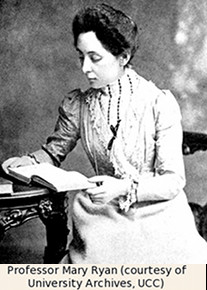 As in many sectors, the appointment of women to academic positions in the NationalUniversity of Ireland and its constituent universities was slow to begin with but has steadily increased over time. Some of the female pioneers of NUI include Mary Hayden, who was appointed Professor of Modern History in UCD in 1911 and was the only woman on the first NUI Senate. Agnes O’Farrelly, a graduate of the Royal University of Ireland as it was at the time, helped found the Irish Association of Women Graduates and Candidate Graduates with Mary Hayden in 1902, to promote equal opportunity in university education. O’Farrelly was later appointed Professor of Modern Irish Poetry in UCD in 1932. Mary Ryan, who became Professor of Romance Languages in UCC in 1910 was the first woman appointed professor in Ireland or Great Britain and Alice Perry, another graduate of the Royal University, was the first woman to graduate in engineering in Ireland or Great Britain. NUI Galway celebrated the naming of the new ‘Alice Perry Engineering Building’ in her honour on Monday 6 March 2017.
As in many sectors, the appointment of women to academic positions in the NationalUniversity of Ireland and its constituent universities was slow to begin with but has steadily increased over time. Some of the female pioneers of NUI include Mary Hayden, who was appointed Professor of Modern History in UCD in 1911 and was the only woman on the first NUI Senate. Agnes O’Farrelly, a graduate of the Royal University of Ireland as it was at the time, helped found the Irish Association of Women Graduates and Candidate Graduates with Mary Hayden in 1902, to promote equal opportunity in university education. O’Farrelly was later appointed Professor of Modern Irish Poetry in UCD in 1932. Mary Ryan, who became Professor of Romance Languages in UCC in 1910 was the first woman appointed professor in Ireland or Great Britain and Alice Perry, another graduate of the Royal University, was the first woman to graduate in engineering in Ireland or Great Britain. NUI Galway celebrated the naming of the new ‘Alice Perry Engineering Building’ in her honour on Monday 6 March 2017.
Feminisms
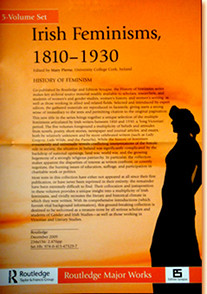 In 2010, a new publication Irish Feminisms 1810 - 1930 (5-Volume Set) was launched by Professor Margaret Kelleher. Edited by Dr Mary Pierse, UCC the series made key archival source material readily available to scholars, researchers and students of women's and gender studies, women's history and women's writing, as well as those working in allied and related fields. This title brought together a unique selection of the multiple feminisms articulated by Irish writers between 1810 and 1930, a 'long Victorian' period. The five volumes foreground a multiplicity of beliefs and attitudes from novels, poetry, short stories, newspaper and journal articles and essays, both by relatively unknown and by more celebrated writers (such as Lady Gregory, Lady Wilde, and the Parnells).
In 2010, a new publication Irish Feminisms 1810 - 1930 (5-Volume Set) was launched by Professor Margaret Kelleher. Edited by Dr Mary Pierse, UCC the series made key archival source material readily available to scholars, researchers and students of women's and gender studies, women's history and women's writing, as well as those working in allied and related fields. This title brought together a unique selection of the multiple feminisms articulated by Irish writers between 1810 and 1930, a 'long Victorian' period. The five volumes foreground a multiplicity of beliefs and attitudes from novels, poetry, short stories, newspaper and journal articles and essays, both by relatively unknown and by more celebrated writers (such as Lady Gregory, Lady Wilde, and the Parnells).
In NUI’s 2008 Centenary publication, The National University of Ireland 1908 - 2008 Centenary Essays, Professor Senia Paseta’s essay looks at the role of women and equality in the early days of NUI and is entitled ‘Achieving Equality: Women and the Foundation of the University’.
Edward J Phelan Lectures and the International Labour Organization
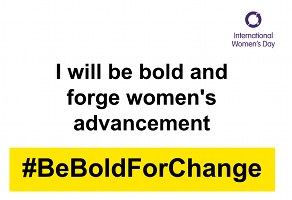 In 2015 President Michael D. Higgins delivered NUI’s Edward J Phelan lecture, entitled "The Future of Work" with a response from Guy Ryder, Director-General of the ILO. In this lecture, President Higgins made reference to the Declaration of Philadelphia, adopted by the ILO in 1944 under the guidance of Edward J Phelan, who was Director-General at the time. President Higgins said that the Declaration affirms that “Labour is not a commodity” (Declaration of Philadelphia, 1-a) and that “All human beings, irrespective of race, creed or sex, have the right to pursue both their material well-being and their spiritual development in conditions of freedom and dignity, of economic security and equal opportunity;” (DP, 2-a)
In 2015 President Michael D. Higgins delivered NUI’s Edward J Phelan lecture, entitled "The Future of Work" with a response from Guy Ryder, Director-General of the ILO. In this lecture, President Higgins made reference to the Declaration of Philadelphia, adopted by the ILO in 1944 under the guidance of Edward J Phelan, who was Director-General at the time. President Higgins said that the Declaration affirms that “Labour is not a commodity” (Declaration of Philadelphia, 1-a) and that “All human beings, irrespective of race, creed or sex, have the right to pursue both their material well-being and their spiritual development in conditions of freedom and dignity, of economic security and equal opportunity;” (DP, 2-a)
The most recent Edward J Phelan lecture was delivered earlier this year by Professor Mary Daly, who herself is emeritus professor of history at UCD and in 2015 was elected as the first female President of the Royal Irish Academy. The lecture was entitled ‘Women at Work: the Role of the ILO’ and focused on women in employment and the role of the International Labour Organisation in strengthening women’s place in the workforce over time.
In NUI’s publication on the lecture it was noted that one of the major initiatives of the ILO coming up to its centenary in 2019 and in its mandate for the future is ‘The women at work initiative’ which will seek to review ‘the place and conditions of women in the world of work and engaging workers, employers and governments in concrete action to realize the equality of opportunity and treatment’. It was noted that although women outnumber men at undergraduate level in academia worldwide 53.5% to 46.5%, there appears to be a ‘leaky pipeline’ where less and less women continue on to postgraduate level and non-professional academia, with only 19% of professors female and 81% male.
In her lecture, Professor Daly demonstrated that women and women’s work were core interests of the ILO from its foundation,beginning in March 1919 when representatives of international women’s organisations presented ILO with a list of demands. She examined the unstated assumption at that time that men’s working conditions could be regulated through collective bargaining between employers and workers, whereas women and children required legislative protection. Later, in 1951, the ILO enacted Convention no. 100 – the Equal Remuneration Convention which Professor Daly remarked had brought a focus on equality relating to women over the following decades. In 1956, the ILO passed a resolution prohibiting sex as grounds for discrimination on pay and later in 1965 ILO Recommendation 123 addressed the integration of women with family responsibilities in employment on a footing of equality.
A central tenet of Professor Daly’s paper was that although the ILO lacked the power to enforce these directives, they exercised influence in other ways, for example its research underpinned the work of the UN Economic and Social Council which culminated in the UN 1966 International Covenant on Economic Cultural and Social Rights and the 1967 Declaration on the Elimination of Discrimination against women. In the case of Ireland, she suggested that international forces such as the ILO were important in bringing about change as Ireland was determined to present an international image as a modern progressive nation.
Professor Daly outlined how after the 1970s the story is one of progress but continuing frustrations. The number of women at work in Ireland rose by over 40% between 1971 and 1992. The major change has been the substantial rise in the number of mothers of young children in the labour-force. ILO 100 first issued in 1951 remains relevant with the gap in male and female earnings at 14% in 2015.
Other speakers at the lecture included Maeve McElwee, Director of Employer Relations at IBEC; Patricia King, General Secretary of ICTU and Mr Pat Breen, TD, Minister of State for Employment and Small Business.
More information on the NUI E J Phelan lectures can be found at http://www.nui.ie/news/default.asp
NUI Awards
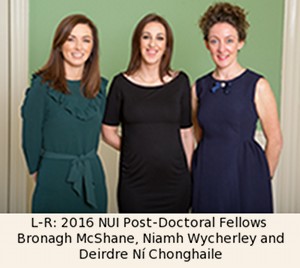 Female students and graduates of NUI institutions were wellrepresented among the winners of the 2016 NUI Awards. 3 of the 4 NUI Post-Doctoral Fellowships were awarded to female graduates of NUI institutions, namely Deirdre Ní Chonghaile, Niamh Wycherley and Bronagh McShane, all three of whom complete their fellowships at NUI Galway. In addition to this, 7 of the 9 French Government Medals & NUI Prizes and 68 of the total 95 Dr H H Stewart Medical and Literary Scholarships and Prizes were awarded to female students of the NUI constituent universities. A full list of the 2016 recipients can be found at http://www.nui.ie/news/2016/awards_2016_Winners_
Female students and graduates of NUI institutions were wellrepresented among the winners of the 2016 NUI Awards. 3 of the 4 NUI Post-Doctoral Fellowships were awarded to female graduates of NUI institutions, namely Deirdre Ní Chonghaile, Niamh Wycherley and Bronagh McShane, all three of whom complete their fellowships at NUI Galway. In addition to this, 7 of the 9 French Government Medals & NUI Prizes and 68 of the total 95 Dr H H Stewart Medical and Literary Scholarships and Prizes were awarded to female students of the NUI constituent universities. A full list of the 2016 recipients can be found at http://www.nui.ie/news/2016/awards_2016_Winners_
Listing.asp.
The NUI Awards competitions are currently open for applications and further information can be found at www.nui.ie/awards.
Athena SWAN Charter
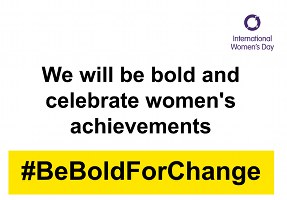 It is recognised that progress needs to be made in relation the the advancement of the careers of women in science, technology, engineering and maths (STEM). NUI supports the Athena SWAN Charter in regard to the representation, the progression and the success of women in STEM as far as possible. More information on the Athena SWAN Charter can be found at http://www.ecu.ac.uk/equality-charters/athena-swan/
It is recognised that progress needs to be made in relation the the advancement of the careers of women in science, technology, engineering and maths (STEM). NUI supports the Athena SWAN Charter in regard to the representation, the progression and the success of women in STEM as far as possible. More information on the Athena SWAN Charter can be found at http://www.ecu.ac.uk/equality-charters/athena-swan/
The campaign theme for International Women’s Day 2017 is #BeBoldForChange. NUI seeks to uphold this theme in 2017 in relation to the role of women in employment in academia in Ireland.






















